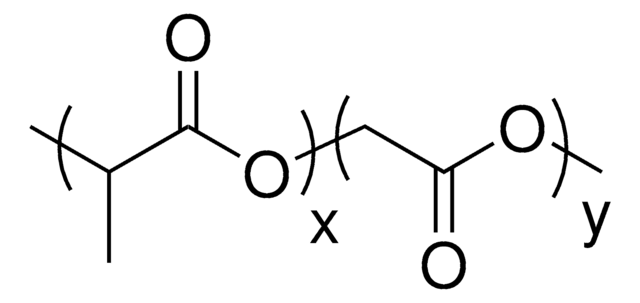908649
Poly(lactide-co-glycolide)-fluorescein
lactide:glycolide 50:50, Mn 10,000-20,000
Synonym(s):
PLGA, PLGA-fluorescein
About This Item
Recommended Products
form
powder or chunks
feed ratio
lactide:glycolide 50:50
mol wt
Mn 10,000-20,000
average Mn 10,000-20,000
composition
Dye Content, 0.15 μg/mg (polymer)
color
yellow to orange
storage temp.
−20°C
Related Categories
Application
Storage Class
11 - Combustible Solids
wgk_germany
WGK 3
flash_point_f
Not applicable
flash_point_c
Not applicable
Choose from one of the most recent versions:
Certificates of Analysis (COA)
Don't see the Right Version?
If you require a particular version, you can look up a specific certificate by the Lot or Batch number.
Already Own This Product?
Find documentation for the products that you have recently purchased in the Document Library.
Articles
Professor Robert K. Prud’homme introduces flash nanoprecipitation (FNP) for nanoparticle fabrication, which is a scalable, rapid mixing process for nanoparticle formulations.
Our team of scientists has experience in all areas of research including Life Science, Material Science, Chemical Synthesis, Chromatography, Analytical and many others.
Contact Technical Service







